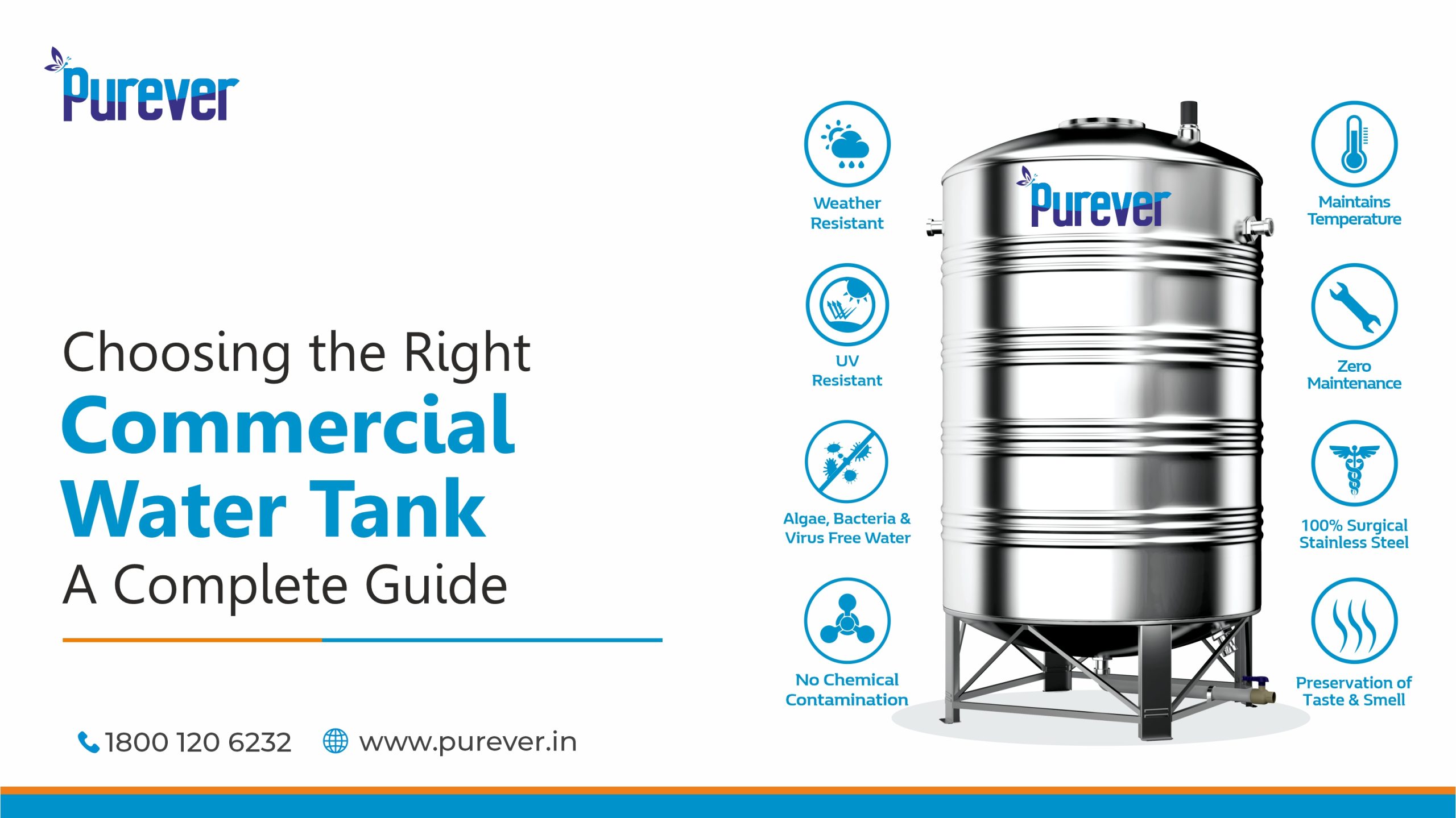Walk into any industrial site, hospital, or even a hotel basement, and you’ll see one thing in common – water tanks tucked away, quietly doing their job. But here’s the catch: not every commercial water tank is built the same. Some last for years without fuss, while others turn into a cycle of cracks, leaks, and constant replacements. Choosing the right one isn’t just about capacity; it’s about health, durability, and peace of mind.
The Old Choices: Plastic and Concrete
For years, most businesses went with plastic tanks because they were cheap and everywhere. But ask anyone who’s used them in a large setup, and you’ll hear the same complaints – water heating up in summer, algae growth, or that faint “plastic” taste nobody likes to admit. Concrete tanks are stronger, yes, but over time they develop seepage and cleaning becomes a nightmare.
That’s why so many businesses have started shifting to stainless steel water tanks. The difference is immediate and long-term at the same time.
Why Stainless Steel Wins in Commercial Projects
Think about what industries need from storage: hygiene, reliability, and low maintenance. A stainless steel water tank checks all those boxes. It doesn’t absorb odors, doesn’t crack under temperature shifts, and because the inside surface is non-porous, it’s much harder for bacteria or sediment to build up. For food processing units, hotels, or healthcare facilities, that makes a world of difference.
I once spoke to a bakery owner who said switching to stainless steel water tanks solved two problems at once – the water stayed cooler, and inspections went smoother because hygiene concerns disappeared. That’s a win businesses rarely get with plastic.
Things to Consider Before You Buy
Choosing the right commercial water tank isn’t just about saying “steel is better.” You still need to match the tank to your project. A few things worth thinking about:
Capacity – How much water do you really need stored at peak use?
Placement – Rooftop? Basement? Tight corners? The shape and design should fit.
Hygiene – If the water touches food or healthcare processes, steel is almost non-negotiable.
Longevity – A stainless steel water tank costs more upfront, but when it lasts decades, it ends up cheaper.
And if the site has unique requirements, like space constraints or insulation needs, that’s where customization helps. Many companies today are asking for tailored designs instead of standard tanks.
Purever’s Approach
At Purever, we’ve learned that businesses don’t want “just a tank.” They want a solution they don’t have to think about again for years. That’s why our commercial water tanks are built in stainless steel, with designs that fit modern needs. Whether it’s a hotel storing water for guests, or a food unit keeping processes hygienic, our stainless steel water tanks are built to protect water and simplify operations.
Choosing the right commercial water tank is less about the tank itself and more about the trust it provides. And for most industries today, that trust is found in a stainless steel water tank that quietly does its job – day after day, year after year.

